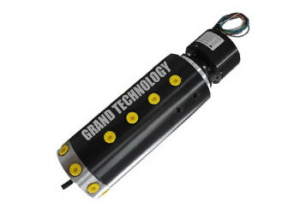People often have the misconception that both are the same. Where are you in this argument? Do you think they are the same or similar?
The solution is no! They are not the same. They have considerable differences between them like the two chutneys: Onion Chutney y Coconut Chutney. Both are used as a garnish for the well-known South Indian dish, Idli. Since they are both chutneys in general, that does not mean that they are equal in depth. Sin Idli, there is no value for both. In the same way, there is not much relevance to the terms Data Analysis and Data Analysis without the data.
What is data analysis and data analysis?
Literally, “Analysis” is the detailed examination of items or the structure of something. Besides, “Analytics” is the systematic computational analysis of data or statistics. In detail, data analysis is a broad area that involves data management with many indispensable tools to produce useful decisions with useful predictions for better output, whereas data analysis is actually a subset of data analysis that helps us to understand the data by questioning and to gather useful information from the information already available.
In simple terms, data analysis is the procedure of exploring data from the past to make appropriate decisions in the future through the use of valuable information. Considering that data analysis helps to understand the data and provides the necessary information from the past to understand what happened so far.
Why data is so popular
Now let's have a quick little discussion between this discussion to find out why they are the hottest tech topics in recent days. Both concepts revolve around the data called Data. Everyone knows that data is a collection of information, but today information is the richest wealth compared to all other wealth, including gold, the diamond, the fuel, etc.
It is because, with date, one can rule the world only if he knows how to use it. Even world famous tech giants like Google, Microsoft, Amazon and other companies collect data and analyze it for multiple purposes, mainly to drive customer feeding through analysis of customer preferences and mindsets, the reason is that customers are the ones who bring wealth to any business. industry.
Hot Tech Talks of the 21st Century
That is why the madness to drive, understand and effectively analyze data is rising like a summer temperature nowadays. And hence the insanity behind the two terms of our discussion Data Analysis and Data Analysis and they have become one of the notable hot topics in the world of technology in this 21st century..
By understanding the information hidden behind data sets, parsing and analysis patterns play an important role in acquiring and displaying much more about the data, accomplish multiple transformations and go through multiple stages to produce valuable results.
Tools and procedure involved
The data analysis journey consists of several stages including identifying the problem, data search, data filtering, data validation, data cleaning, data visualization, data analysis, the inference, the prognosis, etc. The most common tools used in data analysis are R, Python, SAS, SPARK, Google Analytics, Excel, etc.
In the same way, the data analysis journey encompasses data collection, data validation, interpretation, the analysis, the results, etc., shortly try to find what the data is trying to express. The most common tools used in data analysis are Tableau, Excel, SPARK, Google Fusion tables, Node XL, etc.
The analyticsAnalytics refers to the process of collecting, Measure and analyze data to gain valuable insights that facilitate decision-making. In various fields, like business, Health and sport, Analytics Can Identify Patterns and Trends, Optimize processes and improve results. The use of advanced tools and statistical techniques is essential to transform data into applicable and strategic knowledge.... se utiliza comúnmente de muchas formas distintas para hallar algunos patrones extraños como hallar las preferencias, calculate multiple correlations, trend forecasts, etc. The most common real-life findings found through analytics are market trend forecasts, customer preferences and effective business decisions.
With the help of Analysis, it is quite simple and easy to explore more valuable information from the available data through the performance of various types of data analysis, such as exploratory data analysis, predictive analysis and inferential analysis, etc. providing more information on understanding the data.
What is beneficial?
In general, The results of the data analysis are the affordable equipment for a user to understand the real reality behind the data and it is also easy to produce better pictorial and graphical representations in the presentation so that even an illiterate person understands the information that is hidden behind the set of data. better and faster.
But it is quite difficult for an ordinary person to understand the analysis and the procedure performed by the Analytics person to produce predictions and inference.. Because the subsequent procedure, how to create something new from the dataset to produce a better and expected result, may be difficult for a third person with no similar background to understand.
Examples for better understanding
Let's try to understand the concepts with the following real life examples,
Most of us have at least minimal knowledge of the stock market. Just think if you are a beginner and want to start your trade with some profit there. Now say what you will do initially.
-
Most likely, before you start trading, just try to examine the records of past trends of stocks in the stock market to understand what happened so far and thus frame your strategies for more profit, truth? This type of procedure is an example of data analysis.
-
After understanding the trend of stocks, You can now use different techniques to predict the future trend of the stock price and, based on that, buy some stocks, truth? This is a sample data analysis procedure.
Hope you get more additional knowledge about the difference between data analysis and data analysis. I think I have given you some useful ideas to enrich your technological desire.
I ask that you share your valuable thoughts on this post.. It will be more useful to me during my future jobs.






